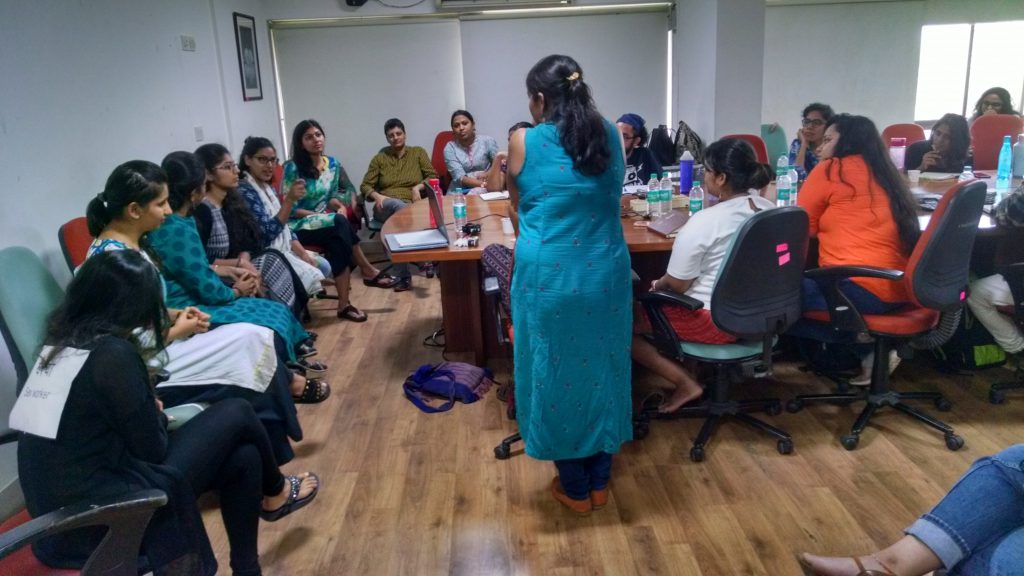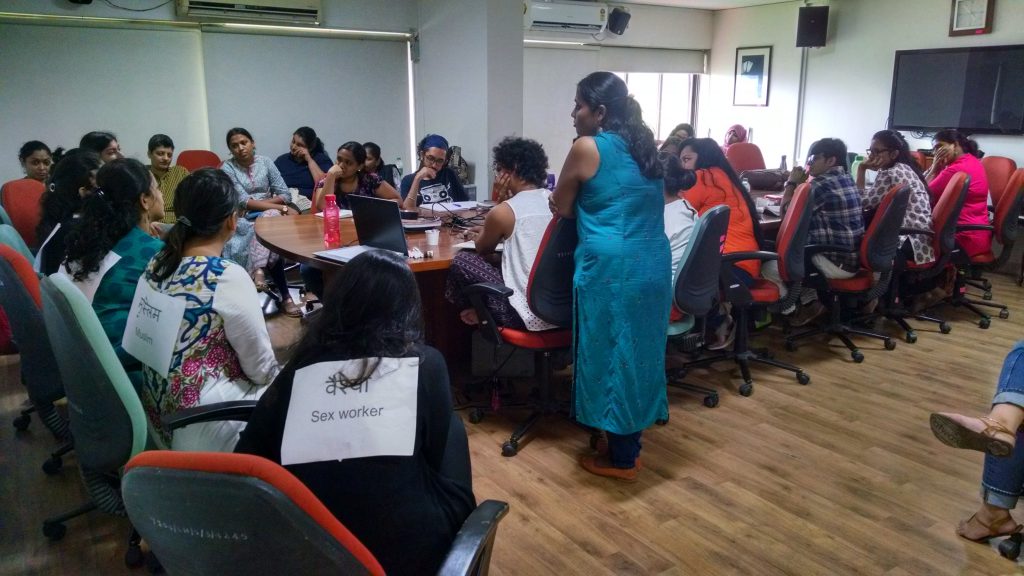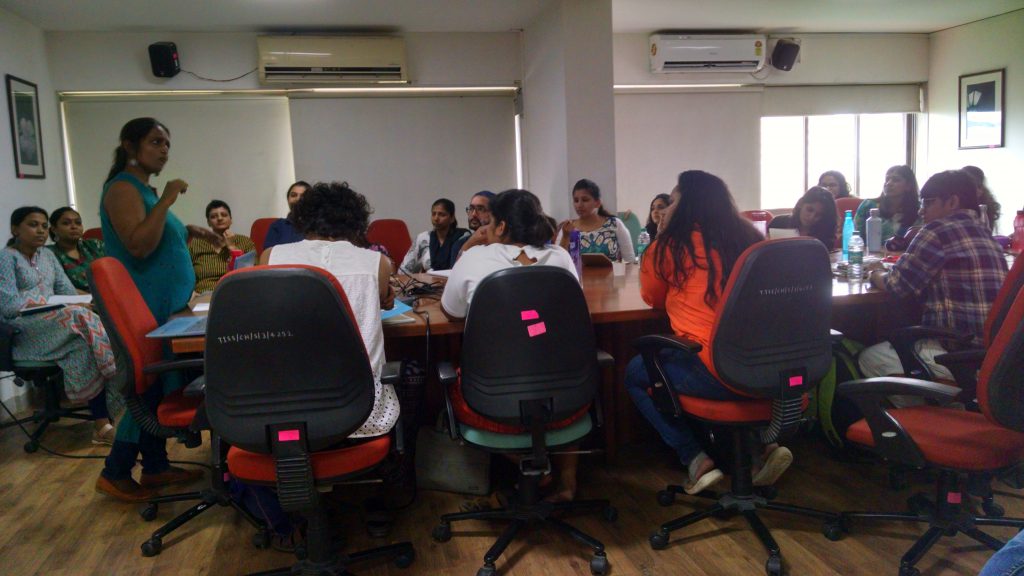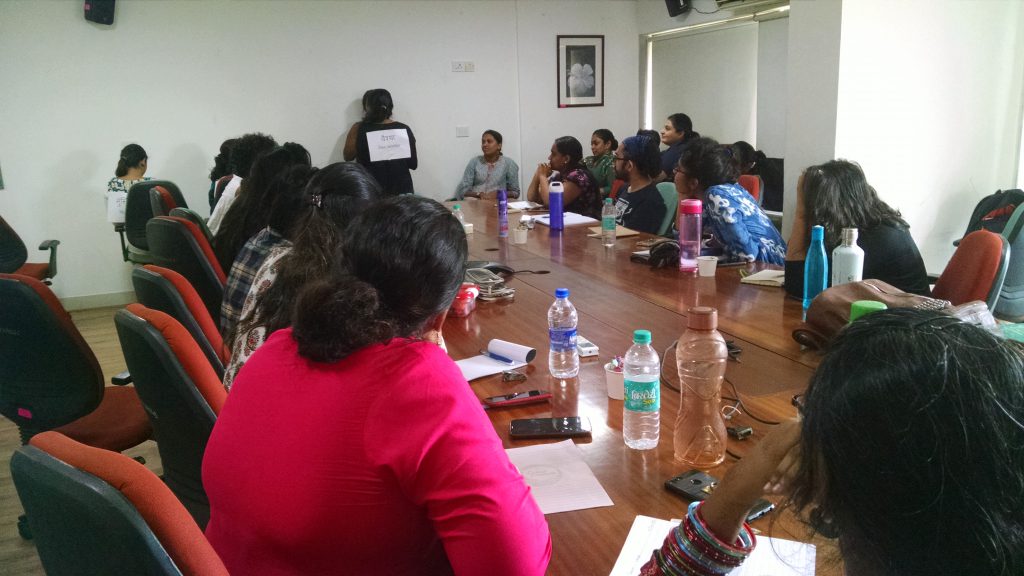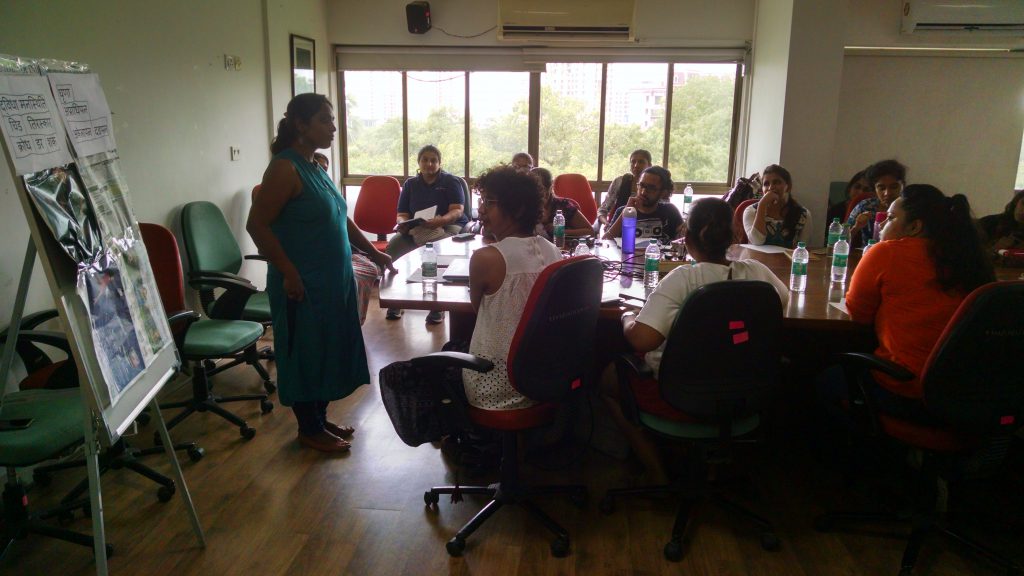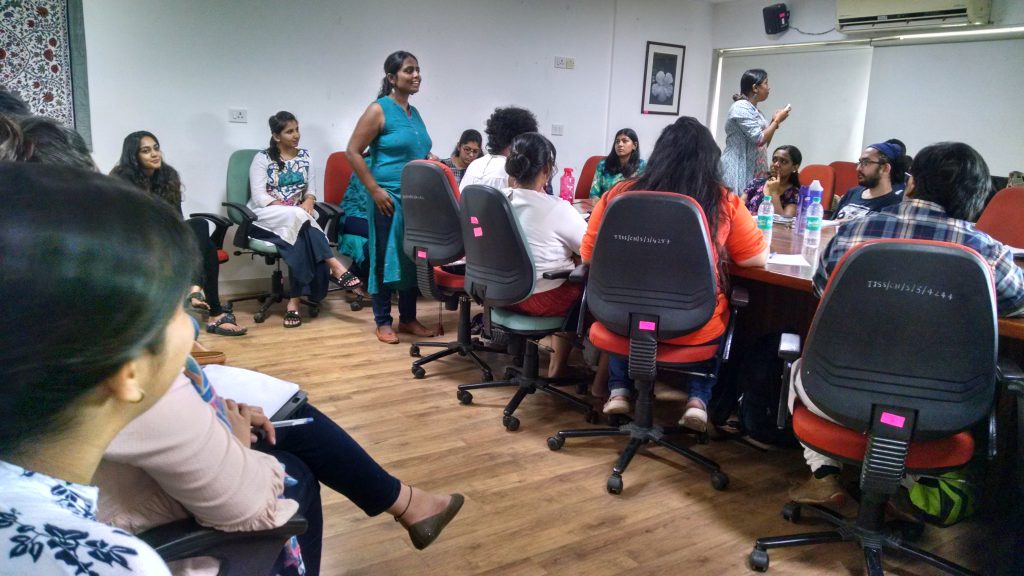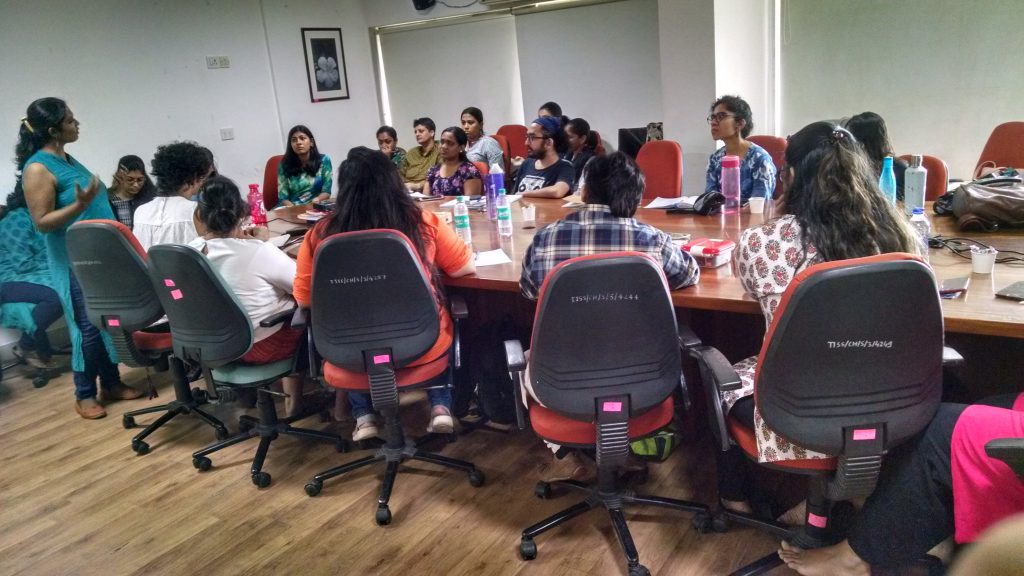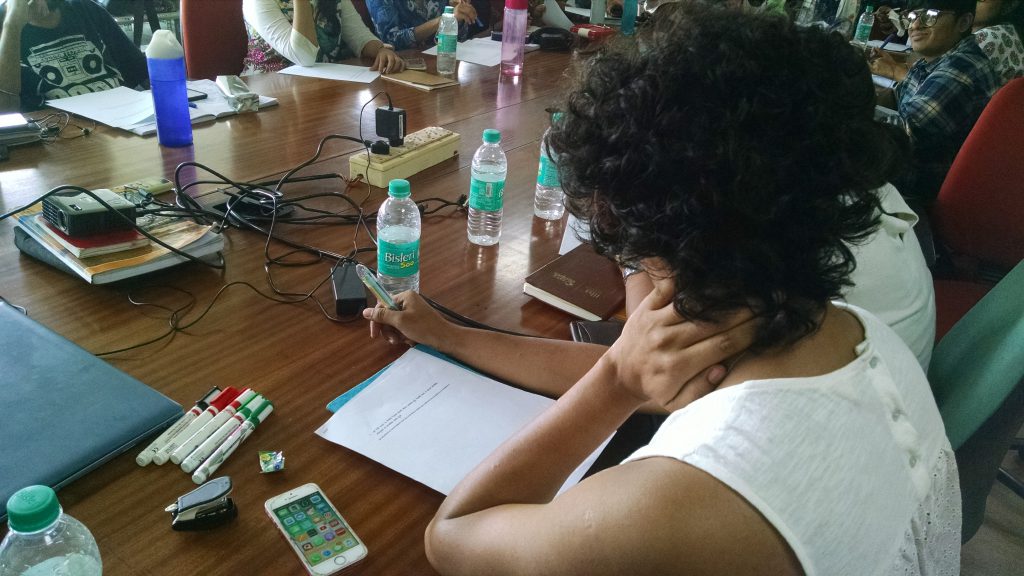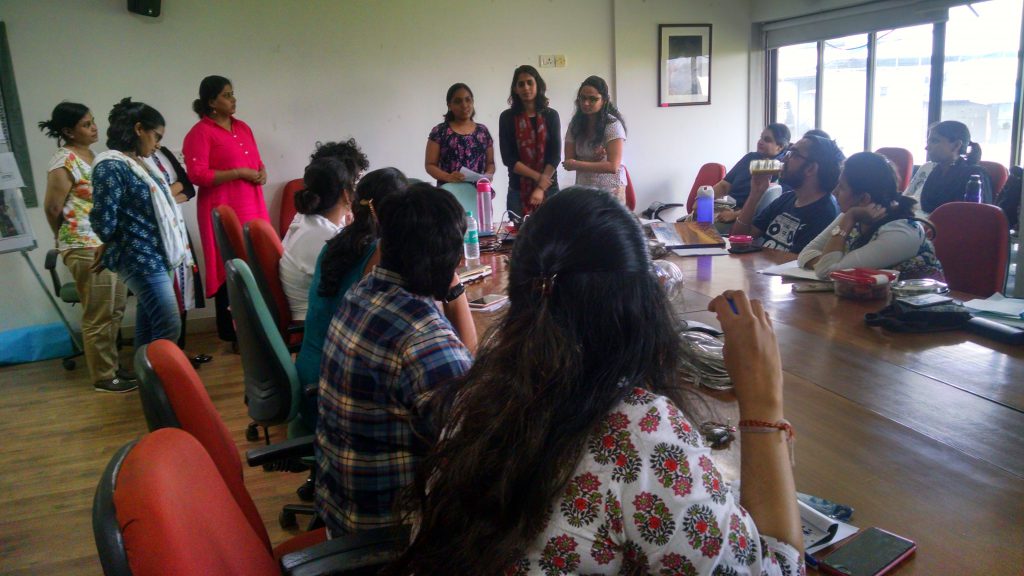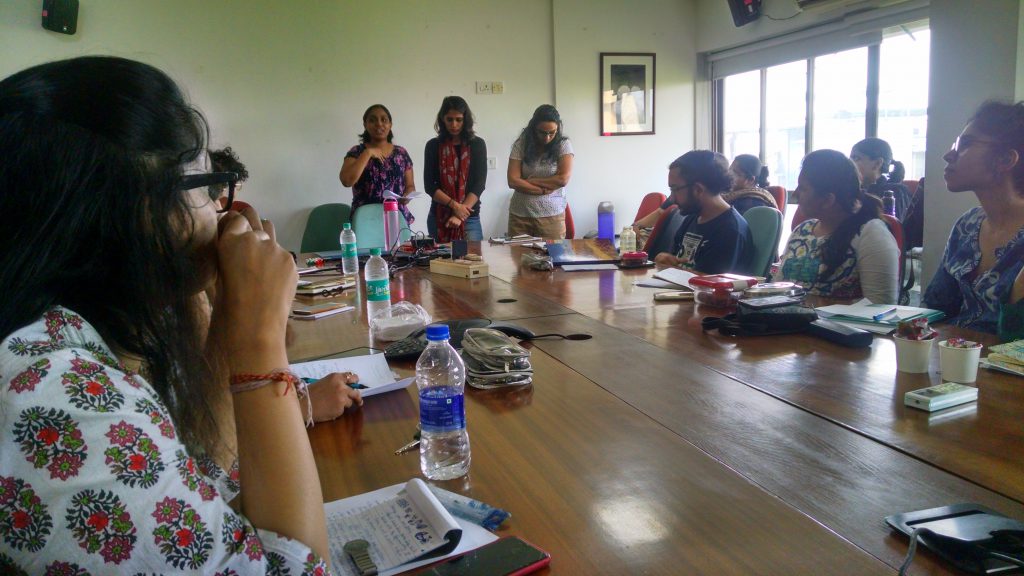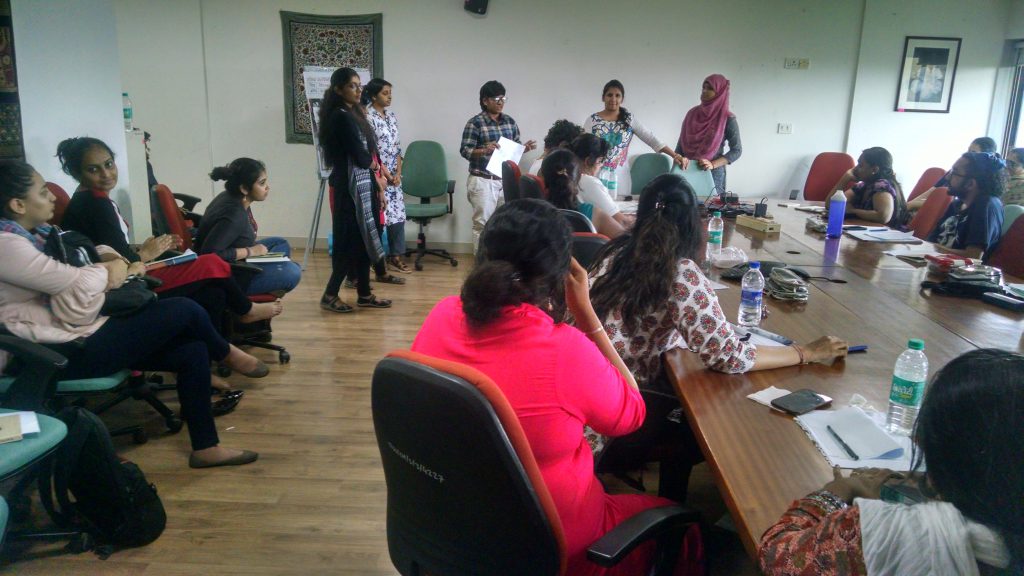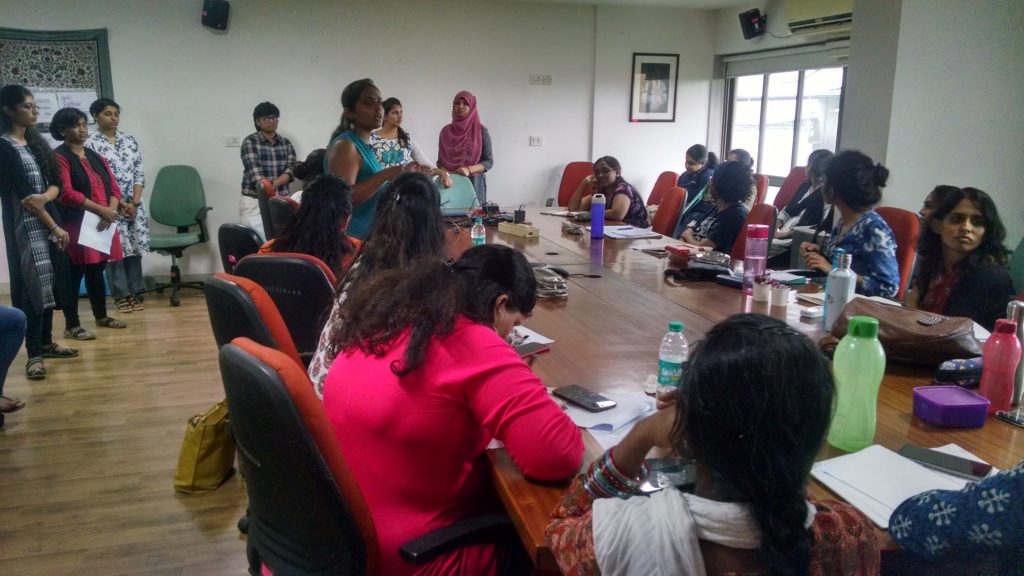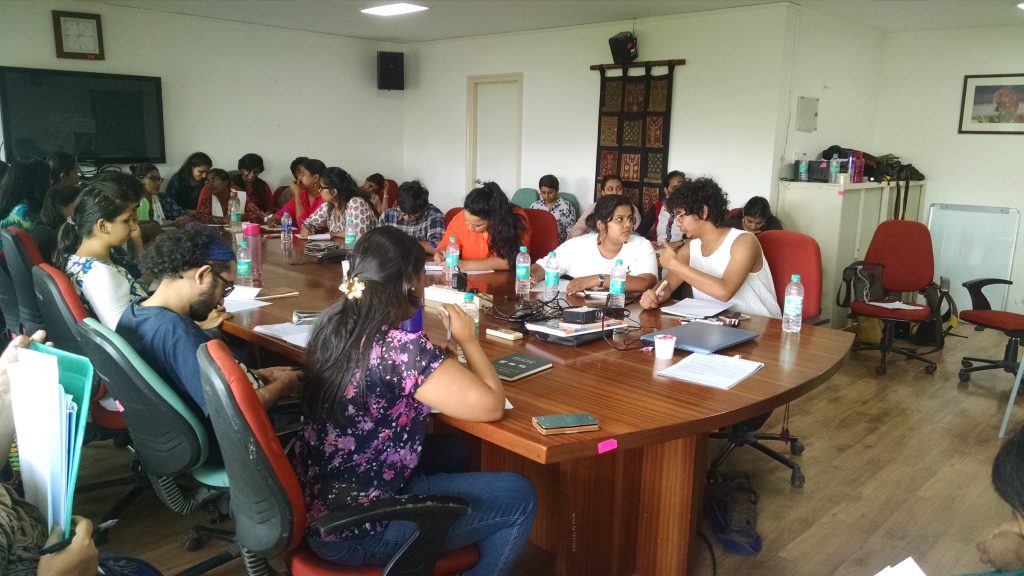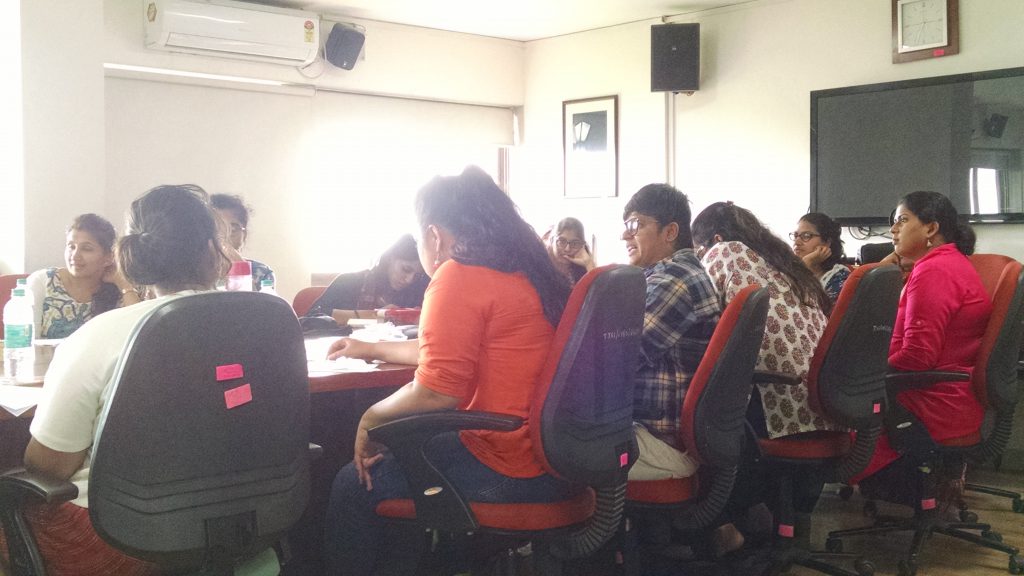Today, Deepa Pawar of Anubhuti facilitated a training with the counselling and research team of iCall – a mental health helpline – based out of Tata Institute of Social Sciences, Mumbai. This was a collaboration initiated by the Mariwala Health Initiative (MHI) – our community and school mental health projects funder – and The Blue Dawn – a support group that facilitates mental health services to Bahujans. The topic was to understand mental health from a socio-political context with intersections of caste, religion, sexuality, gender, nationality – which are all inter-related in India.
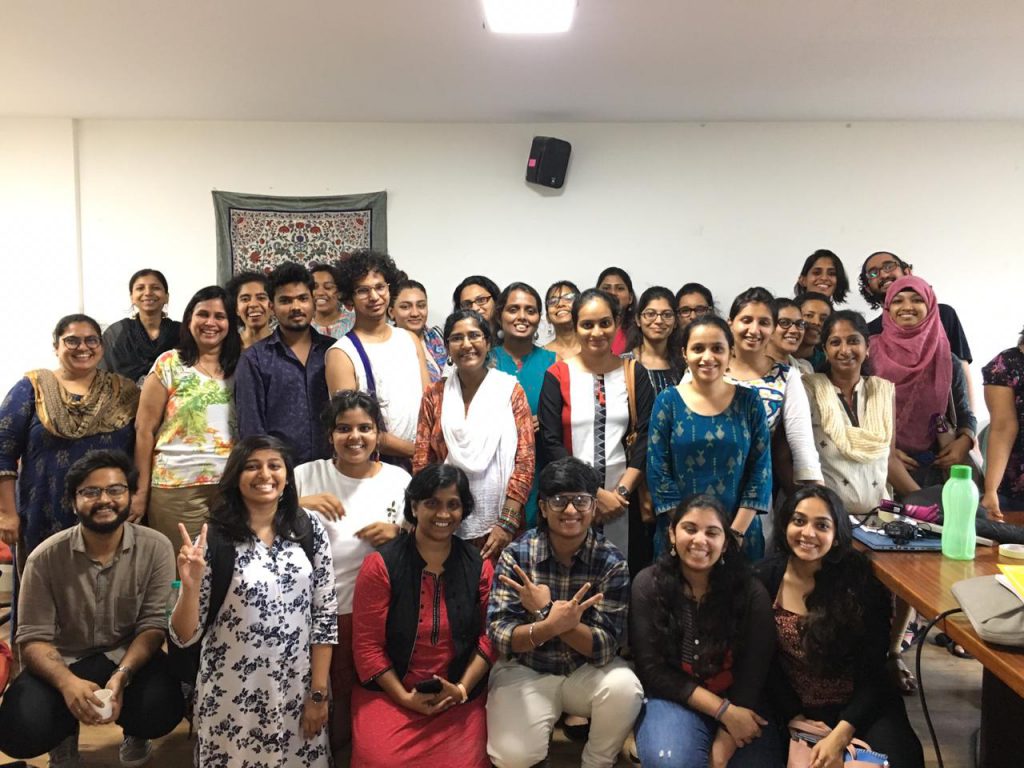
The team of counsellors & researchers in iCall and everyone else involved are truly appreciated for their open-mindedness to learn and unlearn so many of our biases.
Deepa who is also working since 2019 for youth mental health under SDG3 in colleges through trainings, data collection and advocacy, introduced this work to the group as a Goalkeeper Youth Action Accelerator (GYAA) Advocate.
We are trained in psychosocial approach to MH, so when I first heard of this training I thought – how much can caste really be connected to mental health? Turns out – a lot. I have learnt so much.
– Female counsellor, iCall
Through various interactive exercises, the team discussed issues such as ‘labelling’ of people based on their social status which causes lot of mental distress – how such labelling includes harassment and even violence – case in point the caste-based harassment of Dr. Payal Tadvi in Mumbai leading to her suicide. In the course of an emotional exercise, the group of counsellors were asked to empathize with how they would feel if they were labelled based on their caste, profession, minority gender or religion.
Answers ranged from “will feel threatened”, “will feel disrespected”, “will feel humiliated” to “will feel isolated”, “will withdraw from society”, “will try to become someone I’m not”, “will lash out” and “will react violently”. They were then asked how these behaviours would usually be analyzed in counselling set-ups, and the counsellors replied that they have themselves diagnosed “Impulse Control Disorder”, “need for anger management”, etc.
It was eye-opening for the team that such behaviours are not simply individual problems, but in the case of discriminated & oppressed persons, a result of their socio-political location. That when counsellors diagnose these symptoms without sensitivity towards this background of a person, it is doubly distressing for the client, leading many socially vulnerable persons to drop out of counselling and mental health treatment processes.
Counselling says every client is equal, but now I am thinking we have to ensure the process is ‘equitable’, not just equal.
Female counsellor, iCall
This was preceded by a quiz on basic general knowledge questions – in which the ‘achievers’ were invariably named to be people from ‘upper’ castes, whereas few questions on ‘victims/survivors’ of violence and struggle without fail elicited names of oppressed castes. While the former was the collective bias of the group where, as a result of what we are taught in school and college, we remember only upper caste persons as achievers in any field; the latter is the reality. Where violence is majorly faced almost exclusively by people from oppressed castes. As Deepa said during the workshop, “Pick up any indicator of human development, and I can say with surety that those at the bottom in India will without doubt be from dalit, adivasi, nomadic tribe or other minority backgrounds.” This situation must surely affect their mental health, making related services a basic right.
If nothing else, we can at least check our privilege and that we are not oppressing someone.. that is the basic expectation.
Male researcher, iCall
Through other activities, participants realized that mental distress is closely connected to their caste, gender, sexuality, religion or other social location. These exercises powerfully reiterated how mental health is not at all isolated – that “the personal is political” very much in the context of MH – as put forth by a male counsellor. The need to see mental health as a right was repeated. Deepa asserted that India has one of the most progressive laws in the world – The Mental Healthcare Act 2017 – but that it is not being enforced at all. Even us as MH practitioners (counsellors, therapists, activists) do not recommend clients to seek help under this Act, nor do we file complaints against violations of the law. We introduced a number of concepts that we use at Anubhuti to widen the understanding of MH such as #mentaljustice , #mentalhealthjustice, #mentalrights, #mentalempowerment, #mentalequity.
Divya and Christy of The Blue Dawn then shared their lived experiences of how clients from bahujan backgrounds cannot find counsellors who are sensitive about their mental health being affected by their social backgrounds – causing them more distress.
We have lot of power as counsellors. We must be careful not to misuse it, but be responsible, sensitive and resourceful. This includes understanding a client’s social background and responding accordingly – not with sympathy, but understanding.
Female counsellor, iCall
At the end, Deepa introduced her campaign to include more indicators of MH in #SDG3 as a GYAA advocate, which was endorsed by the participants with signatures.
We thank MHI for this opportunity to collaborate with the wonderful teams of The Blue Dawn and iCall. At Anubhuti we believe that MH Rights are the umbrella of all Fundemantal Rights, which when violated lead to MH issues. Therefore we always say, there can be no mental health justice without social justice, and vice versa.

